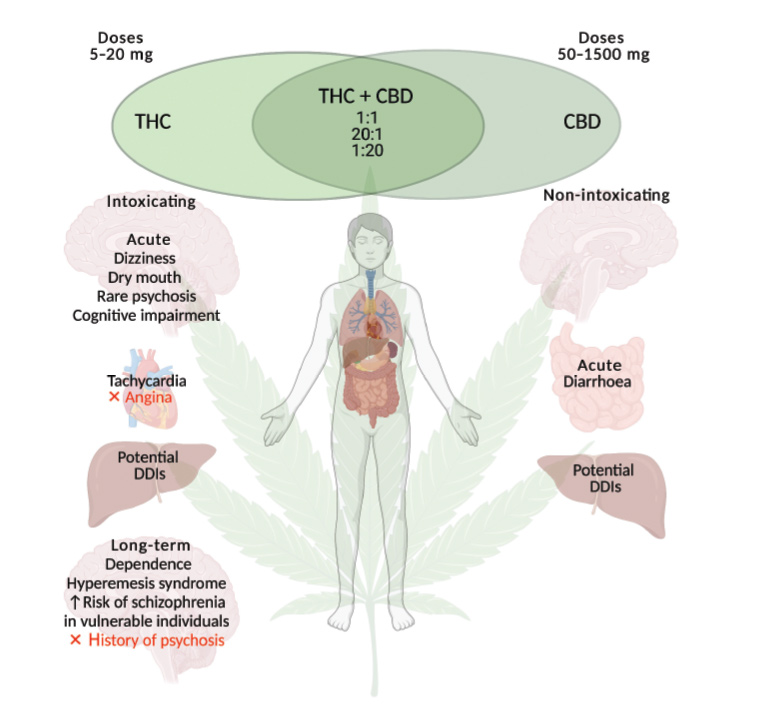CBD, LSD, Magic Mushrooms
Does CBD Have Side Effects? What You Should Know
Cannabidiol, commonly known as CBD, has gained massive popularity for its potential health benefits, from relieving anxiety and stress to reducing inflammation and improving sleep. Unlike THC, CBD does not produce a “high,” which makes it a more appealing option for many seeking natural relief.
But despite its reputation as a safe and non-intoxicating compound, many people still ask: Does CBD have side effects? The short answer is yes—but for most people, they are mild and manageable. In this article, we’ll explore the possible side effects of CBD, what causes them, and how to use CBD safely.
What is CBD?
CBD is one of over 100 compounds found in the cannabis plant known as cannabinoids. It’s most commonly derived from hemp, which contains little to no THC. CBD interacts with the body’s endocannabinoid system (ECS), a network of receptors that help regulate functions like mood, sleep, appetite, pain, and immune response.
Unlike pharmaceutical drugs, CBD is generally considered well-tolerated, but like any substance, it can cause side effects in some individuals.
Common Side Effects of CBD
Though side effects are not guaranteed and vary from person to person, here are some of the most commonly reported:
1. Dry Mouth (Cottonmouth)
CBD can reduce saliva production, leading to a dry mouth sensation. While not dangerous, it can be uncomfortable. Staying hydrated before and after taking CBD can help.
2. Drowsiness or Fatigue
At higher doses, CBD may have a sedative effect. While this can be beneficial for those using CBD to aid sleep, it may cause drowsiness in people taking it during the day.
3. Digestive Issues
Some users report mild digestive discomfort such as nausea, bloating, or diarrhea. This is more common with higher doses or when CBD is taken on an empty stomach.
4. Changes in Appetite or Weight
CBD may either increase or decrease appetite in some users. These effects are typically mild and temporary.
5. Dizziness or Lightheadedness
In rare cases, CBD can lower blood pressure slightly, which might cause dizziness—especially when standing up quickly. This is more likely in sensitive individuals or those taking blood pressure medication.
Less Common but Possible Side Effects
- Mood changes: Some individuals may experience irritability or mood swings.
- Headaches: While not common, headaches have been reported, possibly due to impurities in low-quality products.
- Liver enzyme changes: High doses of CBD have been shown in studies to temporarily affect liver enzyme levels. People with liver conditions should consult a doctor before using CBD.
Who is Most at Risk for Side Effects?
While CBD is safe for most people, certain groups may be more prone to side effects:
- People taking other medications: CBD can interact with some prescription drugs, especially those processed by the liver’s cytochrome P450 enzyme system (e.g., blood thinners, antidepressants, antiepileptics).
- Individuals with low blood pressure: CBD may lower blood pressure slightly, which can cause lightheadedness.
- Pregnant or breastfeeding women: There is insufficient research on CBD’s safety during pregnancy and breastfeeding, so use is generally not recommended.
How to Minimize CBD Side Effects
1. Start Low and Go Slow
Begin with a low dose (5–10 mg) and gradually increase it based on your body’s response.
2. Use High-Quality Products
Choose CBD products from reputable brands that offer third-party lab testing to ensure purity, potency, and safety. Avoid products with additives or artificial ingredients.
3. Monitor Interactions with Other Medications
If you’re taking other medications, talk to your healthcare provider before starting CBD to avoid unwanted interactions.
4. Take With Food
Taking CBD with food can help reduce the risk of stomach upset and improve absorption.
When to See a Doctor
If you experience persistent or severe side effects, discontinue use and consult a healthcare professional. Also, speak with your doctor before using CBD if you:
- Have chronic medical conditions
- Take prescription medications
- Are pregnant or breastfeeding
Final Thoughts
CBD is generally safe and well-tolerated by most people, especially when taken responsibly. However, like any supplement, it can cause side effects—particularly if taken in high doses, combined with other medications, or used incorrectly.
By understanding potential side effects and taking simple precautions, you can enjoy the many benefits CBD may offer while minimizing the risk of discomfort or complications.As always, consult with a healthcare provider if you have concerns about CBD and your individual health needs.

